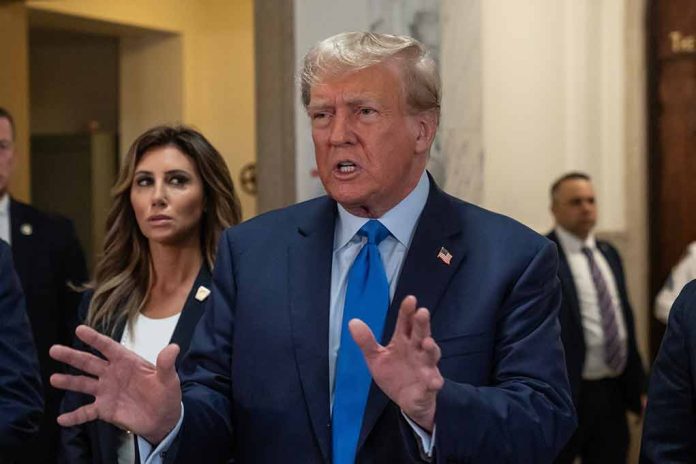
Judge Tanya Chutkan has approved Special Counsel Jack Smith’s request for a nearly 200-page brief in the federal election subversion case against former President Donald Trump—what happens next?
At a Glance
- U.S. District Judge Tanya Chutkan approved Special Counsel Jack Smith’s request to file an oversized opening brief.
- The brief addresses presidential immunity and Trump’s four felony charges regarding the 2020 election.
- Trump’s defense objected, calling it “fundamentally unfair,” but was overruled by Judge Chutkan.
- This legal document will examine Supreme Court rulings on presidential immunity and their implications.
- The trial will not occur before the 2024 presidential election.
Judge Approves Smith’s Oversized Brief
U.S. District Judge Tanya Chutkan has given Special Counsel Jack Smith the green light to file an extensive, nearly 200-page brief that aims to delve deeply into the complex issue of presidential immunity in relation to Trump’s charges. This document will seek to clarify how the U.S. Supreme Court’s rulings affect Trump’s case, creating a foundational legal argument for Smith’s prosecution.
The move comes despite significant objections from Trump’s legal team, who argue that such an extensive filing is fundamentally unfair, given the timing and potential influence on public opinion. However, Judge Chutkan was unpersuaded, emphasizing that comprehensive legal filings are necessary for cases of such magnitude.
The judge overseeing former Pres. Trump's federal election interference case has granted the special counsel's request to file an oversized brief on presidential immunity, including potential new evidence in the case. https://t.co/6FBFfayyP9
— ABC News (@ABC) September 24, 2024
Implications of the Supreme Court’s Ruling
Smith’s oversized brief will scrutinize how the Supreme Court’s decisions on presidential immunity impact Trump’s four felony charges. This effort follows a ruling that Trump is shielded from criminal liability for actions taken while in office, complicating the prosecution’s efforts to attribute unlawful intent to his actions post-2020 election.
“There’s no rush to judgment here,” Chutkan said.
The Supreme Court is currently evaluating Trump’s immunity claims, which may delay any potential rulings in the near future. The final decision could set a significant precedent for how former presidents are prosecuted long after their terms have ended.
Impact on the Upcoming Presidential Election
This case will remain unresolved until after the November 2024 presidential election, a timeline that concerns both legal experts and political analysts. The approval for an oversized brief means that substantial new evidence and legal arguments will be laid out in a highly detailed manner, providing the public with the most comprehensive disclosure yet on Trump’s alleged involvement in subverting the 2020 election results.
“A party’s factual proffer does not conclusively establish anything—it merely provides evidence for the judicial factfinder to consider,” Chutkan wrote. “The schedule reflects the court’s best judgment about how to comply efficiently with the Supreme Court’s instructions on remand.”
Trump’s team, on the other hand, seeks to delay further legal battles over immunity until after the election, fearing that public disclosures could adversely affect his campaign. Nevertheless, Judge Chutkan has allowed prosecutors to present new evidence and court documents by September 26, which could include critical and potentially damaging information about Trump.
Ongoing Legal Maneuverings
Special Counsel Smith has also taken steps to align with the Supreme Court’s directions by filing a new indictment focusing specifically on Trump’s actions after the 2020 election. Smith’s legal team is preparing extensive legal arguments to fortify their case.
“The court need not address the substance of those claims,” Chutkan wrote. “Defendant does not explain how those putative violations cause him legal prejudice in this case, nor how this court is bound by or has jurisdiction to enforce Department of Justice policy.”
As this legal battle unfolds, it remains to be seen how it will affect the broader political landscape. One thing is clear: the legal system must navigate these complex issues meticulously to ensure a fair and just outcome for all parties involved.
Sources
2. Prosecutors in Trump election case get judge’s OK to lay out fresh evidence in court filing















